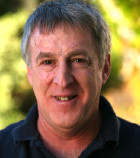GAM 2017 Blog
- Published: Saturday, April 01 2017 12:10
By Mike Simmons
With the recent passing of the March equinox, those in Earth’s northern hemisphere look forward to spring. The season represents a new cycle of life, and a time to focus on the things that make our lives special. Across the lands of the former Persian Empire, the moment the Sun crosses the celestial equator marks the beginning of a new year on the Persian calendar, and the start of the ancient celebration of Nowrouz. With up to 13 days of celebration, Nowrouz is like an amalgam of several US holidays: New Year, Christmas, Chanukah, Thanksgiving, and more rolled into one.
I learned of Nowrouz during my travels in Iran, the center of Persian culture. I later visited Iraqi Kurdistan, where Persian culture also endures, and learned that they also have their own form of the holiday, as do many other countries in the region. Those trips are where Astronomers Without Borders began. In the region that was the cradle of all civilization, I found commonality and new perspective on being human in what had been strange and foreign places.
Go back just a little in time – a very short time on the scale of astronomy – and you find a common connection between us all. The roots of all our cultures are buried in the past. But time travel isn’t necessary to see those connections. I find common elements wherever I travel. Music, writing, family, and many rituals are found in cultures that develop independently. These things are rooted in humanity itself. They are human pursuits, things we humans all do. Plunk infants down on a foreign planet and the civilization that develops will share characteristics of those on Earth.
Terrestrial environment varies with location, but not the environment overhead. That is the same for all of us. Looking out at the rest of the Universe – whether from a northern or southern hemisphere perspective – engenders the same feelings, and raises the same questions, in all of us.
Music, food, and rituals have similarities worldwide, but they are rarely identical. Astronomy is different. Astronomy is a voyage, gazing into the same sea of stars, probing deeper with optics, always searching, seeking answers. We never reach a destination, even when we learn about the distant places we see. Sail the Earth’s oceans and where you land depends a lot on where you started. In astronomy, all destinations are shared, and our starting point is always the same – Earth.
Considering ourselves as humans first – crew members on Spaceship Earth – rather than citizens of our own country, tribe, or group doesn’t come naturally. Those few who have seen Earth from space as a planet surrounded by stars in every direction often gain a new perspective on our home planet. We earthbound individuals know there are stars in every direction but we don’t experience it directly. The stars are always overhead, not all around us.
Astronomy brings us the astronaut’s perspective, showing us our place in the cosmos. When we connect with others, or use remote telescopes in distant places, we gain a sense of Earth surrounded by its cosmic environment. When we share the view from our homes – like passengers on opposite sides of a train describing the views from their windows - we indirectly experience Earth as a place enveloped by the cosmos.
But there’s much more that we gain when we connect through astronomy. We learn about each other. My first trip to Iran began with considerable trepidation as I stepped into unknown territory. I quickly learned that what little I knew about the place and people was completely wrong. I’ve returned many times since.
This is the inevitable result of interacting with others. We learn, we understand, and we find more commonality than differences. In a dangerous world where misconception, misunderstanding, misinformation, and misinterpretation leads not to cooperation but fear, not communication but shouting, we need more ways to reach out and connect. To me, this is the most important outcome of Astronomers Without Borders programs. As I’ve written many times, presentations about astronomy in Iran that I gave on my return to the US led to those outcomes. We see ourselves in the lives of others, also filled with family, friends, hopes and desires, the daily struggle. Through astronomy we connect naturally, on a truly basic, human level that allows us to see the commonalities of humanity in each other.
The ancient celebration of Nowrouz, like other spring rituals based on this astronomical moment, is a time of renewal when we step away from daily life and focus on the things we truly cherish. Family and friends, nature, our connection with the past, and our hopes for the future. Regardless of the culture, these are always foremost. Like astronomy, these basic needs of life connect us with our past, represent our future and, most importantly, they connect us with each other.
 Mike Simmons is the founder and president of Astronomers Without Borders. No stranger to organizing global programs, Mike was was co-chair of 100 Hours of Astronomy in the International Year of Astronomy 2009. Mike has been an amateur astronomer involved in public outreach and education for 40 years.
Mike Simmons is the founder and president of Astronomers Without Borders. No stranger to organizing global programs, Mike was was co-chair of 100 Hours of Astronomy in the International Year of Astronomy 2009. Mike has been an amateur astronomer involved in public outreach and education for 40 years.








